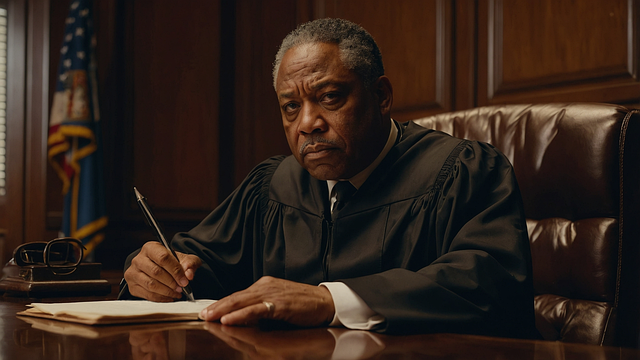The legal system in the U.S. operates at two levels: federal and state, with distinct sentencing practices for criminal offenses. Federal courts handle serious crimes like fraud and drug trafficking under uniform guidelines, often resulting in stricter penalties. In contrast, state courts deal with a broader range of cases, allowing more local discretion in sentencing. Understanding these differences, particularly the Differences Between State and Federal Sentencing, is vital for effective legal strategy, especially when representing clients facing white-collar or economic crimes, as it dictates defense approaches and potential outcomes.
Litigation, a cornerstone of justice systems, encompasses various legal battles. This article delves into the complexities of litigation types, offering a comprehensive guide for understanding key distinctions. From the foundational concepts to practical implications, we explore the domain of federal vs state courts, criminal vs civil lawsuits, and sentencing guidelines—including the crucial differences between state and federal sentencing. Get ready to navigate this intricate legal landscape with clarity and insight.
- Understanding Litigation: A Basics Overview
- The Domain of Federal vs State Courts
- Criminal vs Civil Lawsuits: Key Differences
- Sentencing Guidelines and Their Application
- Practical Implications and Real-World Scenarios
Understanding Litigation: A Basics Overview

Litigation is a legal process where parties resolve disputes through courts, involving various types of cases. Understanding the basics of litigation is crucial for anyone involved in the legal system. At its core, litigation is about presenting evidence, arguing legal points, and seeking a judgment from a judge or jury. The process differs based on the jurisdiction and the nature of the case, with significant variations between state and federal systems.
In the context of criminal defense, there are distinct differences in sentencing between state and federal courts. Federal sentencing often carries more stringent penalties for similar crimes due to uniform guidelines implemented by the United States Sentencing Commission. Conversely, state sentencing may vary widely depending on individual state laws and policies, focusing on rehabilitation or harsher punishments. For instance, cases involving white-collar and economic crimes are frequently handled in federal courts due to their intricate legal nature and potential for substantial financial impact. These differences underscore the importance of choosing the right legal representation, whether it’s for a general criminal defense or specialized white-collar defense strategies.
The Domain of Federal vs State Courts

In the United States, the legal system is structured with two primary levels of courts: Federal and State. These courts differ significantly in their jurisdictions, procedures, and sentencing guidelines. When it comes to differences between state and federal sentencing, several key factors come into play. Federal courts handle cases involving federal laws, such as bank fraud, drug trafficking, and civil rights violations, while state courts deal with a wide range of criminal and civil matters under state law.
One notable distinction lies in the process of avoiding indictment and the potential outcomes. Federal courts often have more stringent procedures and evidence requirements, which can make it challenging for defendants to achieve a winning general criminal defense strategy. However, state court systems may offer more flexibility in certain cases, allowing for more creative and compelling winning challenging defense verdicts. Understanding these differences is crucial for individuals facing legal charges, as it influences their strategic decisions and potential outcomes.
Criminal vs Civil Lawsuits: Key Differences

When navigating the complex landscape of litigation, understanding the distinctions between criminal and civil lawsuits is paramount. These two legal domains, though both involving dispute resolution, serve vastly different purposes and carry significant differences in sentencing. In terms of Differences Between State and Federal Sentencing, these variations are especially pronounced.
Criminal lawsuits, which primarily address violations of criminal law, often involve severe penalties such as imprisonment, hefty fines, or both. These cases, typically handled at the state level, focus on punishing wrongdoers and protecting society. Conversely, civil lawsuits revolve around disputes between individuals or entities, where damages are sought to compensate for harm caused. Here, the white collar and economic crimes that often come under federal jurisdiction can yield substantial financial penalties, reflecting an unprecedented track record in white collar defense strategies.
Sentencing Guidelines and Their Application

Sentencing Guidelines play a critical role in shaping the outcome of criminal cases, offering a structured approach to justice administration. These guidelines are designed to ensure consistency and fairness in punishment across similar offenses, taking into account various factors such as the nature of the crime, the defendant’s background, and mitigating circumstances. In both state and federal courts, sentencing guidelines serve as a road map for judges, providing a framework within which they can exercise discretion while adhering to established principles.
While the basic concept is uniform, there exist notable differences between state and federal sentencing guidelines. State laws often offer more flexibility in sentencing options, allowing for a broader range of punishments tailored to local crime trends and societal values. In contrast, federal sentencing guidelines tend to be more standardized, focusing on national priorities and ensuring fairness across jurisdictions. For general criminal defense attorneys, understanding these nuances is paramount. By navigating the complexities at all stages of the investigative and enforcement process, they can build winning challenging defense verdicts, leveraging their knowledge of local versus federal frameworks to benefit their clients.
Practical Implications and Real-World Scenarios

The practical implications of understanding the differences between state and federal sentencing are profound. In real-world scenarios, these distinctions can significantly impact a case’s trajectory. For instance, complex white-collar crimes often fall under federal jurisdiction, attracting stiffer penalties and more extensive resources throughout all stages of the investigative and enforcement process. This can translate into an unprecedented track record of winning challenging defense verdicts for accused individuals who navigate these complexities adeptly.
Conversely, state sentencing laws vary widely, affecting everything from eligibility for reduced sentences to available punishments. As such, state-level cases may offer more flexibility in plea bargains or alternative sentencing options. Defense attorneys must therefore tailor their strategies accordingly, leveraging the nuances of federal versus state systems to secure the best possible outcomes for their clients.
In navigating the complex landscape of litigation, understanding the nuances between federal and state court systems, as well as criminal and civil lawsuits, is paramount. This article has delved into these key distinctions, exploring everything from basic principles to practical implications. By grasping the differences between state and federal sentencing guidelines, individuals and legal professionals can better prepare for real-world scenarios, ensuring fair and effective justice across diverse legal jurisdictions.






